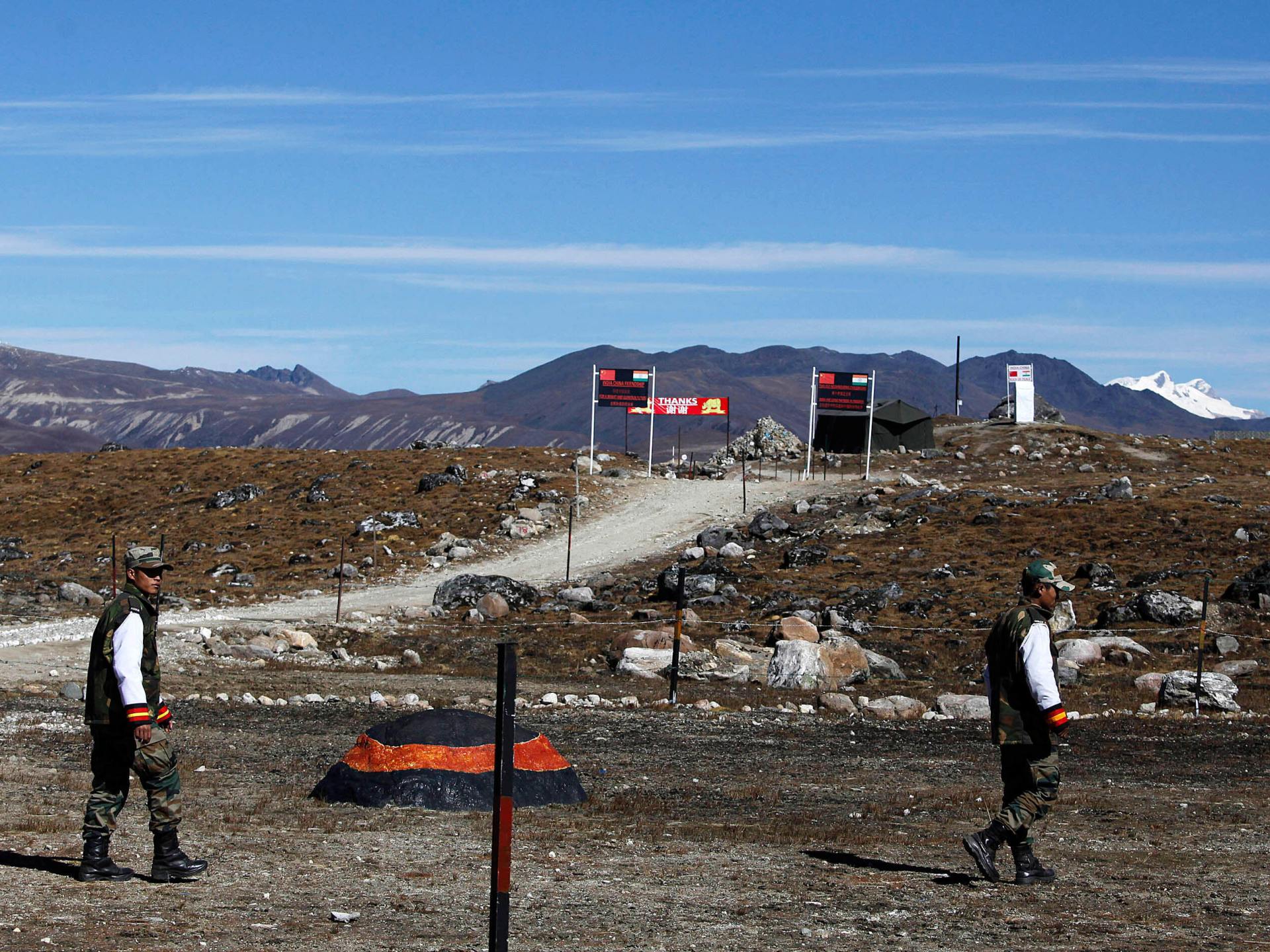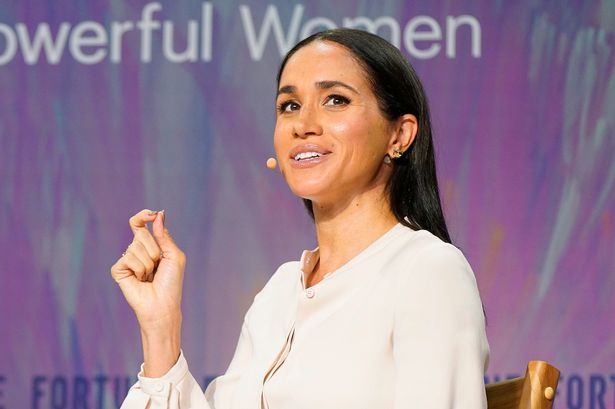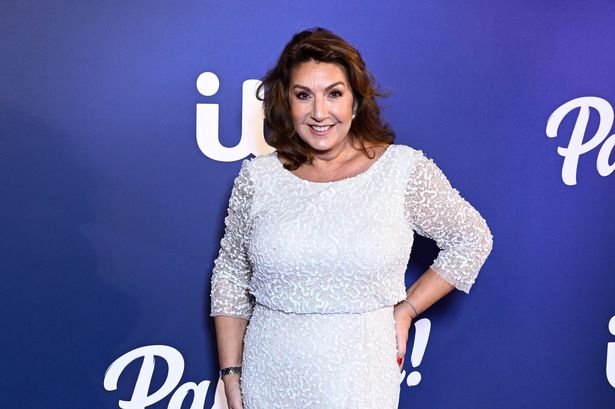After a month of restraint in their relationship, the Indian government and China are at odds with one another over alleged harassment of a woman in Arunachal Pradesh, an eastern state of India.
China claims the territory of Arunachal Pradesh and calls the region southern Tibet, or Zangnan.
What transpired, why the tensions between the world’s two most populous countries are significant, and what are the causes of the tensions.
What happened?
On Friday, Prema Wangjom Thongdok traveled from the United Kingdom to Japan using her Indian passport. She stopped at Shanghai Pudong International Airport in China for what was supposed to be a three-hour layover.
Thongdok claimed that Shanghai airport authorities unlawfully held her and harassed her for 18 hours because her passport listed Arunachal Pradesh as her birthplace.
She added that the Chinese authorities at the airport said her Indian passport was “invalid”, claiming that Arunachal Pradesh was actually part of China.
I actually crossed the immigration gate. It was e-gate, so I put my passport through and went to the security gates”, Thongdok told the India Today news magazine over videolink from Thailand’s capital, Bangkok.
“India! One of the officials screamed as he arrived and screamed. India! ‘ with my name in her blatant rant,” she continued.
When Thongdok asked the official why she was being taken out, she said the official told Thongdok that her Indian passport is not valid because she was born in Arunachal Pradesh. The official continued, “Arunachal is a part of China,” according to Thongdok. Your passport is invalid”.
Thongdok responded, “Arunachal is an Indian state. I’ve never heard of it being part of China”.
Without knowing when the authorities would let her leave the airport, she continued, adding that she was kept there.
Other Indian media outlets reported that Thongdok said she was pressured by airport authorities to buy a new ticket on China Eastern Airline and hinted that her passport would be returned only when she complied. She lost money on hotel reservations and flight cancellations as a result.
She added that with help from a friend in the UK, she eventually got in touch with the Indian consulate in Shanghai. Later, Indian authorities led her to a late-night flight out of the city.
The Indian Express newspaper reported that Thongdok had passed through Shanghai Pudong International Airport in October without any issues. What changed this time is unclear.
Have similar incidents happened before?
People from Arunachal Pradesh who arrived in China were issued stapled visas in Beijing in 2005. Other Indian residents receive a stamped Chinese visa on their passports.
China’s argument: If someone from Arunachal Pradesh is first-class citizens, they cannot issue regular visas.
But India has never accepted stapled Chinese visas on its passports. According to the report, doing so would mean accepting that Arunachal Pradesh residents are not Indians.
In 2013, two archers from Arunachal Pradesh were issued stapled visas , to travel to Wuxi in eastern China for the Youth World Archery Championship. They were prohibited from visiting China by India.
In July 2023, three martial arts athletes from Arunachal Pradesh were issued stapled visas for the World University Games, which took place in China’s Chengdu. In the end, the entire Indian Wushu team did not participate in Chengdu’s games.
In September 2023, the same three wushu athletes from Arunachal Pradesh were unable to compete in the Hangzhou Asian Games because they were unable to download their accreditation cards, which were to serve as visas to visit China.
Anurag Thakur, the Indian sports minister, protested by canceling his trip to Hangzhou to inaugurate the games.
What is the Arunachal Pradesh dispute about?
According to Raj Verma, a nonresident scholar at George Washington University’s Sigur Center for Asian Studies, the India-China border dispute over Arunachal Pradesh is a legacy of the British Empire.
In March 1914, the McMahon Line was established during the Simla Convention in India, which involved negotiations between Tibet, China and the British Empire. Henry McMahon, the country’s top negotiator, is the line’s name. While Chinese delegates attended the convention, they did not sign the main agreement and did not recognise the McMahon Line.
McMahon, however, chose to follow Tibet’s path. China has held that Tibet did not have the authority to unilaterally decide on the border with India, especially after China sent troops into Tibet and annexed it in 1951. Beijing has also relied on outdated maps, including those from the British, that depicted China as a sovereign state along the McMahon Line.
Since gaining independence from Britain in 1947, India has treated the McMahon Line as the border with China.
Instead of relying on the McMahon Line, Beijing has argued that India and China should negotiate and draw their borders.
For decades, China claimed only a part of Arunachal Pradesh known as Tawang. However, its claim has expanded to the entire state of northeast India in recent years.
Verma said tensions have intensified since Chinese President Xi Jinping came to power in 2012 and adopted a much more muscular approach to Beijing’s territorial demands.
“We take a firm and unwavering position on China’s sovereignty and territorial integrity. … We cannot lose one inch of territory passed down by our ancestors. We also want nothing from other people,” Xi said in 2018.
China’s relations with many of its other neighbours have also soured over the past decade due to territorial disputes, including Beijing’s claims over all of the South China Sea.
Verma said, “That’s why it’s becoming increasingly difficult for the dispute to be resolved, and it’s going to be very difficult for this issue to be resolved in the future,” citing China’s position.
In India, Prime Minister Narendra Modi, in power since 2014, has also adopted a more assertive foreign policy, including on border disputes. He once promised to show China “red eyes,” a Hindi metaphor for firmness and strength.
How has the Arunachal Pradesh dispute played out historically?
The least-populated state in India, Arunachal Pradesh, has long been a source of tension between New Delhi and Beijing.
In October 1962, present-day Arunachal Pradesh became one of the two theatres of the Indo-China War, and Beijing’s troops attacked Indian positions on both sides of the Namka Chu river. Even though the Chinese People’s Liberation Army won the war, Indian soldiers escaped from Tawang.
In October 1975, another skirmish broke out at the Tulung La pass, which connects Tibet and Arunachal Pradesh. Each side alleged that another was attacking its soldiers. Four Indian soldiers were killed in what was the last deadly border clash between the neighbours until the 2020 crisis in Ladakh, in which at least 20 Indian soldiers and four Chinese service members were killed after hand-to-hand combat.
The conflicting claims made by India and China over the region have had other effects, despite the region’s largely peaceful past 50 years.
In 2012, China objected to the Dalai Lama’s scheduled visit to Arunachal Pradesh. Jiang Yu, the spokeswoman for China’s Ministry of Foreign Affairs at the time, “we firmly oppose Dalai visiting the so-called “Arunachal Pradesh.” The Dalai Lama did not visit the state in 2012.
Tawang experienced a few minor border scuffles in December 2022. Both sides blamed each other. China claimed that Chinese soldiers had spied on Indian territory and attempted to “change the status quo” while India accused Indian forces of obstructing a routine patrol.
In January, China approved the construction of a dam in Medog County, Tibet, near the Indian border. In response, India reacted by approving the Arunachal Pradesh’s Siang Upper Multipurpose Project to stop flooding and reduce the effects of the Chinese dam. However, the Indian reservoir project risks submerging dozens of Indigenous villages in India and Bangladesh.
What makes Arunachal Pradesh significant?
The state is strategically important to India because it links the country with Southeast Asia and is also a military district, Verma said. The state is close to Bhutan in the west and shares international borders with Myanmar in the southeast. Myanmar, in turn, connects India to Thailand, Laos and beyond via the India-Myanmar-Thailand Trilateral Highway project.
Verma claimed that China also holds religious significance for the state. In 1683, the sixth Dalai Lama, Tsangyang Gyatso, was born near Tawang.
China maintains that Arunachal Pradesh is an extension of Tibet, which is a source of tension between the neighbors. Beijing has long viewed India’s decision to grant the current Dalai Lama sanctuary after he fled Lhasa during a Chinese crackdown as a provocation.
In September 2024, India named a previously unnamed mountain peak in Arunachal Pradesh after the sixth Dalai Lama.
China’s concern about this choice was expressed. “Let me say more broadly that the area of Zangnan is Chinese territory, and it’s illegal and null and void for India to set up the so-called Arunachal Pradesh in Chinese territory. This is China’s consistent position, according to Lin Jian, a spokesperson for the Chinese Foreign Ministry at the time.
“Beijing would be extremely reluctant to give up Arunachal Pradesh and the Tawang issue”, Verma said.
What has the Chinese and Indian government done?
In response to a reporter’s question about Thongdok’s experience at the Shanghai airport, Chinese Foreign Ministry spokesperson Mao Ning said on Tuesday: “Zangnan is China’s territory. The so-called Arunachal Pradesh, which India has illegally established, has never been recognized by the Chinese side.
She insisted that Chinese officials had dealt with Thongdok “in accordance with laws and regulations”.
“The law enforcement was fair and unaccountable,” the statement read. The lawful rights and interests of the person concerned were fully protected. No allegedly detained or harassed woman was taken, and no other measures were taken against her. The airline provided her with resting facilities and meals”, Mao said.
In response to his Chinese counterpart’s statements, the Indian Ministry of External Affairs’ spokesperson, Randhir Jaiswal, stated on Tuesday: “Arunachal Pradesh is an integral and inalienable part of India, and this is a self-evident fact. No amount of denial by the Chinese side is going to change this indisputable reality”.
Jaiswal continued, “The Chinese side has been very interested in the detention issue. Chinese authorities have still not been able to explain their actions, which are in violation of several conventions governing international air travel. The Chinese government’s actions also go against their own rules, which forbid nationals from all nations from getting a visa-free transit for up to 24 hours.
What does this mean for India-China relations?
Verma described the most recent conflict as “a minor blip in the bilateral relationship” between China and India. “It should not be an issue when it comes to improving India-China relations”.
Over the past year, New Delhi and Beijing’s relationship has thawed, especially as of 2020-2024. Both have been battered by heavy tariffs imposed by United States President Donald Trump, which analysts said have forced them to cooperate.
Following the clash in Ladakh’s Galwan Valley in 2020, India-China relations began to deteriorate. This marked the first deadly border incident in 40 years and resulted in India banning 200 Chinese apps, including TikTok. The “most challenging phase” in recent years was described as the “most challenging phase” for India’s foreign minister.
Since late 2024, both nations have sought to reset ties. During a troop withdrawal along the Line of Actual Control, Modi and Xi met in Kazan, Russia.
In August, Chinese Foreign Minister Wang Yi visited India, leading Modi to praise their “respect for each other’s interests” and “steady progress” in relations. Modi and Xi met for talks later that month in China for the first time in more than seven years.
Still, Verma pointed out, despite the thaw in ties, “the overall strategy of both countries towards each other has not changed”.










